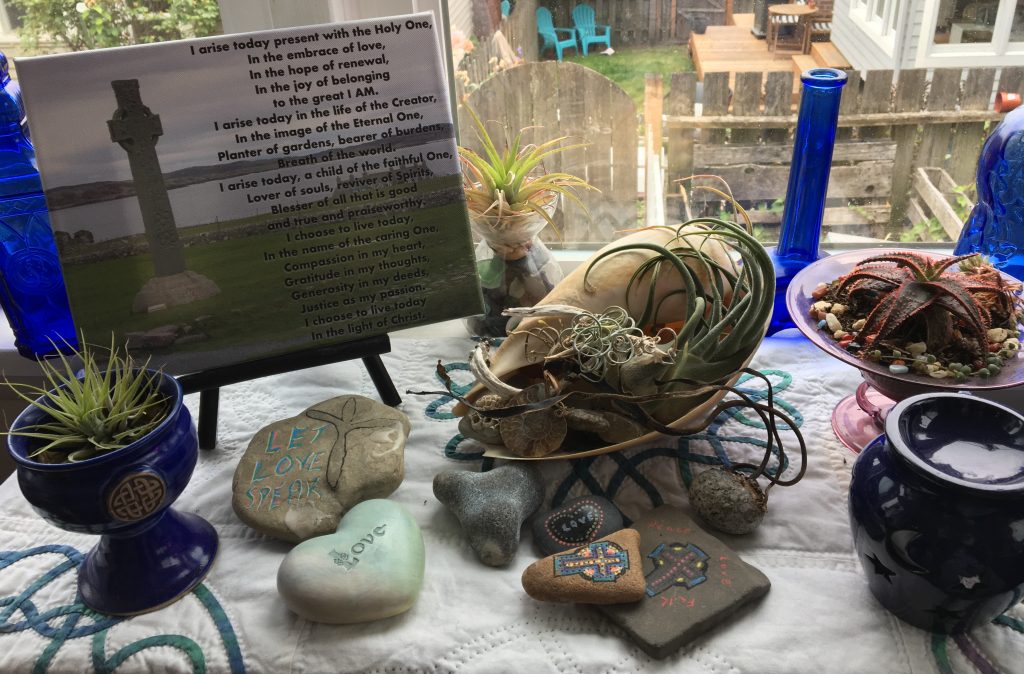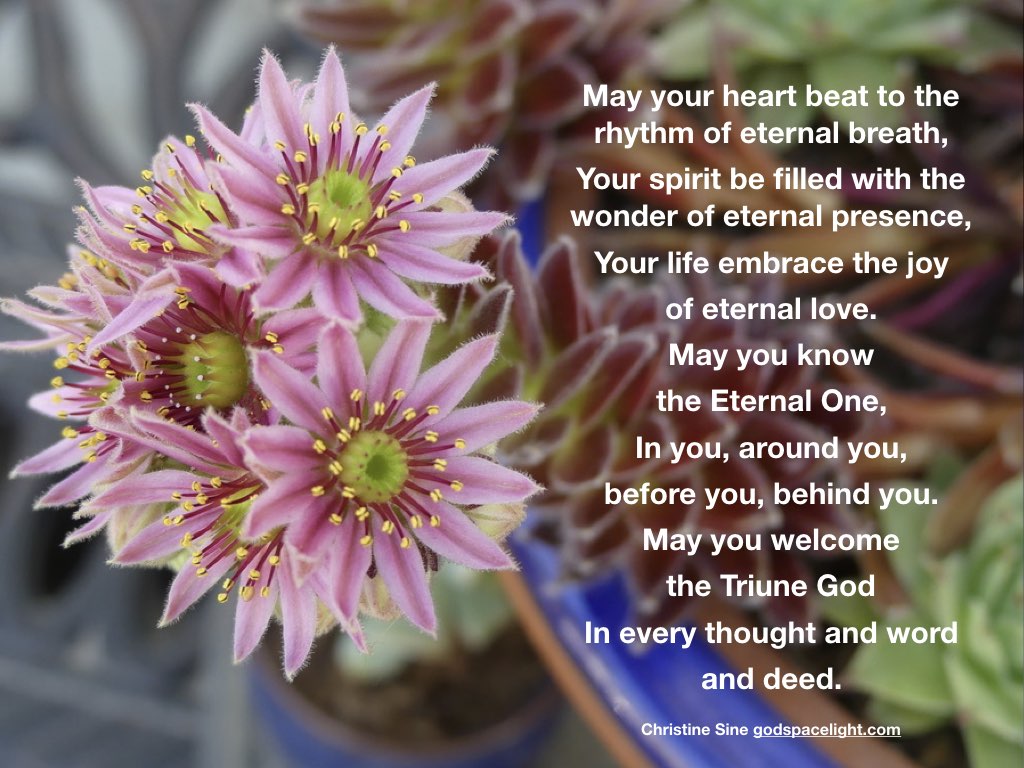by Christine Sine
I was recently asked to write the forward for a book of poems by Godspace author Jenneth Graser. I have never met Jenneth Grazer. I live half a world away from her, yet I find that her poetry reaches out across the miles to touch my soul.
Like Jenneth I have discovered the beauty and the joy of translating my thoughts and emotions into written prayers and poems. Like her I have found that the writing of such prayers and poems helps me to slow down, breathe deeply and take notice of the voice of God bubbling up from deep within me. Much to my surprise I find that poetry like this is a powerful force that can transform not only my own life but also the lives of others who read them and allow them to resonate in their hearts.
I am not alone in my discovery as the blossoming of poetry on Godspace shows. Many of us are discovering that writing and reading poetry stir all our senses in profound and enriching ways.
Poetry is Not Just Words.
Poetry is not just about words. Sometimes we begin with a word. At other times it is a thought or an image that resonates in our minds. It calls to us, perhaps out of the depths of our pain, or through flashes of intense joy and awe inspiring wonder. The image grows and takes shape emerging into words that burst out of our mouths. We recite them aloud, sensing the vibrations not just in our ears but also in our hearts and minds. They pluck at our heartstrings and slowly we craft them into a cascade of verses that brings healing and refreshment in mind, soul and body.
The Bible is full of poetic images like this that pull at our heartstrings and beckon us to listen to the voice of God, healing and cleansing our spirits on the way. Yet sometimes we feel that these ancient books cannot fully express what is bubbling up within us. Spoken prayers and words of adoration and praise don’t seem to do it either. We need the language of modern poetry that enables us to interpret the pain and the joy of life in our own unique and expressive way.
Poetry Helps Us Express Our Emotions
There are a number of reasons why poetry is particularly suited to the expressing of our emotions. First, emotional undertones are hard to put into words. The metaphor and imagery that takes shape in a poem often helps us give voice to them. Second, the use of poetic rhythm taps into powerful nonverbal responses, in much the same way that music does. Even the abstract nature of poetry is a powerful tool that makes it easier to take a closer look at painful experiences which can be threatening to us if we try to approach them in a direct manner.
Poetry Is A Powerful Focusing Tool

Canvas print on my prayer altar
My prayer poems are an integral part of my daily devotions. I have written many of them on cards with one of my photos in the background. I carry them with me as I travel and pull them out throughout the day to refocus my world on God. Some have become canvas prints that sit on my prayer altar and provide a focus each morning for my thoughts and worship of God. This practice has greatly enriched my life and drawn me closer to God in special and unexpected ways.
What Is Your Response?
You may not feel inclined to write poetry. Perhaps you prefer music or the painting of images. Or it might be sculpture or leatherwork or the creation of gardening that resonates in your soul in the same way that poetry does for many of us. For some it is cooking or even creating mathematical patterns and symbols can be therapeutic.
We live in a world that is full of pain and heartache and all of us need tools that help us process this pain. You may not like to write poetry as I do but I am sure that God has given you some form of creative expression that carries the same power. Sit prayerful for a few minutes. What form of creative expression comes to mind as an avenue through which you express your emotions and process your pain.

